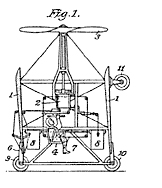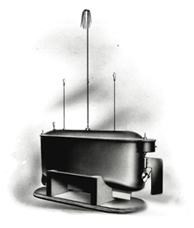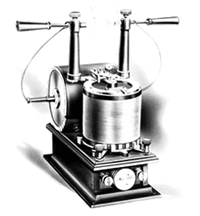-
Professor Jose Marti
Department of Electrical Engineering, University of British Columbia
Home Page
-
Nikola Tesla, an Engineer
This presentation will discuss the life and ideas of Nikola Tesla
from my point of view, that of an engineer. Nikola Tesla was one of the
most talented engineers of the late nineteenth and mid twentieth
centuries. He had the mind of a true engineer. He would visualize how to
make an idea work and would not let go until concept became reality. As
we engineers know, the process of bringing an idea to reality brings in
more ideas, more possible realities. His ideas were endless, touching
on all aspects of what can be done with electricity, from electric
power, to wireless communications, to x-rays, to beam rays, to robotics,
to the concept of the Internet. He was very aware of his talents and he
made the decision, since very young, to embrace his destiny without
hesitation, without second thoughts. Even though he strongly rejected
his father's wish that he should become a priest, he fully devoted
himself to the service of humanity, doing what he knew how to do best,
harvesting the potential of electricity. He fulfilled his destiny.
* Video recordings for this presentation are not available.
-
Biosketch
Dr. Marti's Research Group is a world leader in the development of
models and solution techniques for fast transient circuit solutions of
large systems, particularly in connection with the Electromagnetic
Transients Program EMTP. A student version of the Microtran-EMTP program
can be downloaded here.
The group has extended the basic EMTP solution techniques to very
fast Real-Time simulation. Our Power System Simulator OVNI uses a
matched software (MATE) and hardware architecture (PC-Cluster) to
achieve very fast performance for systems of unlimited size using
off-the-shelf Pentium-class personal computers. OVNI is aimed at
simulating in real-time the operation and control of large power system
networks.
The Group's system simulation work proceeds in three fronts: a)
Accurate and efficient system component models (transmission lines,
transformers, machines, power electronic devices, and controllers), b)
Efficient algorithmic solution techniques (network partitioning
techniques, multirate solutions for latency exploitation and hybrid
phasor/time-domain solutions), and c) PC-cluster architectures.
The group is also developing advanced signal processing techniques
for in-service intelligent diagnostic systems. A current project
involves the signature characterization of power transformers from their
high-frequency response. This signature is then used for the detection
of incipient faults and aging defects while the transformer is in
service.
An important area of current interest in the group is the simulation
of distributed energy systems. Together with other members of the Power
Systems Group and the Power Electronics Group, we are studying the
coordinated operation and control of local distributed generation
resources (LDR's), including microturbines, fuel cells, solar, and wind
generators, sharing resources with each other and with the existing
power grid.







